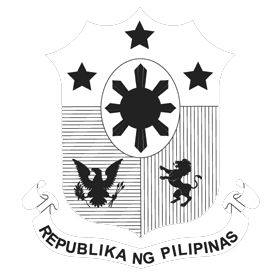INDUSTRY TRANSFORMATION
Innovation is at the heart of DTI’s Inclusive Innovation Industrial Strategy
(i3S). It is at the front and center of the country’s strategic policies and programs, allowing industries to be in a better position to face competition in both domestic and export markets, thus helping build resilience among industries amidst challenges brought about by future uncertainties.
The i3S aims to grow globally competitive and innovative industries. Central to the i3S framework is the competition-innovation-productivity nexus that serves as channels through which investments, employment, and growth would be generated. Current efforts on innovation address various strategic opportunities and challenges, including those arising from Industry 4.0, increasing global competition, regional and global issues on trade, regional economic integration, and building more resilient industries.
Industry 4.0 has been creating new industries and disrupting business models at an accelerated pace. New technologies arising from Industry 4.0 would spur the development of new production techniques and business models that would transform global production systems, create new, more distributed and connected value chains, and could trigger selective reshoring and nearshoring, thus requiring new skills and capabilities at each stage of the Global Value Chain. We are spearheading programs that take advantage of all these new technologies to support the innovation capacity and competitiveness of Philippine businesses.
With new technologies, new skills and capabilities would be required such as analytical thinking, innovation, creativity, originality, technology design & programming. New roles would be created for data analysts, scientists, specialists in AI, ML, Big data, automation, and new technology. Skills development, upskilling and reskilling form part of strategy in building capacity in key priority industries.
With all the changes brought about by the current pandemic, new mindset and renewed thinking are demanded. The pandemic has been an impetus to fast-track innovation with greater focus on resilience & sustainability. Teams will have to formulate innovative solutions that require cooperation, collaboration, and cohesion in anticipation of the future. The goal is to gather all initiatives and resources to be used through meaningful channels to lead into value-adding approaches and measures. In the age of New Normal, the government will critically take part in leading the country to economic, business, and societal recovery. CIG will significantly contribute to supporting strategies to implement innovation and digitalization activities, and build competitiveness among firms.
Digital Transformation
DTI and Siemens will collaborate in driving the digital transformation of the Philippines’ industry sector by introducing cutting-edge automation and digitalization technology for selected industries relevant to both sides in a 4-step approach.
Prioritization – audit of select relevant manufacturers by using the Smart Industry Readiness Index (SIRI) and create an As-Is SIRI Landscape;
Solution Simulation – testing of proofs of concepts in Digi-Labs to simulate the impact of digital technology in the manufacturing process; and
Solution Implementation – implement a Digital Enterprise Portfolio in the Philippines that is tailored to meet the individual customer requirements and to address the current manufacturing issues.
Industry 4.0 Pilot Factory
DTI is working on the establishment of an Industry 4.0 pilot factory which will house cutting-edge manufacturing technologies like advanced robotics, intelligence-of-things, drones, virtual and augmented reality for factory simulations, among others.
The Pilot Factory will serve as a demonstration and training hub for learning and pilot Industry 4.0 technologies and solutions to accelerate the digital transformation of Philippine enterprises.
SME Academy and Innovation Center
DTI is establishing an SME Academy and Innovation Center to enhance manufacturing innovation and develop the human resource capabilities of our small enterprises to ensure resilience and competitiveness in the Fourth Industrial Revolution.
Securing Manufacturing Revitalization and Transformation (SMART)
Securing Manufacturing Revitalization and Transformation (SMaRT) Program is being formulated for the manufacturing sector to engage in innovation and digital transformation in preparation for the Fourth Industrial Revolution.
The Program will aim to support the adoption of Industry 4.0 technologies, solutions, and business models, industry-led innovation and research & development, global value chain upgrading, standards development, and technology-intensive investments especially in rural areas.
Electric Vehicle Incentive Strategy (EVIS)
The Electric Vehicle Incentive Strategy (EVIS) will be an industry-specific, targeted, time-bound, performance-based, and transparent fiscal and non-fiscal support program for the transport sector to enable its transition from traditional motor vehicles to electric vehicles.
The Strategy focuses on developing the entire EV ecosystem through launching information, education, and campaigns, incentivizing industrial development, establishing and enforcing standards and regulations, promoting research and development, and revitalizing human resource development through upskilling and reskilling.
Artificial Intelligence (AI) Roadmap
An Artificial Intelligence Roadmap is being crafted to provide an analysis of the impact of AI on Philippine agribusiness, manufacturing, and services industries and the country’s workforce and recommend policies and programs to achieve the country’s target of becoming a center for AI in the region.
Philippine Skills Framework
The DTI partnered with SkillsFuture Singapore (SSG) to cooperate and enhance Philippine human capital and the reskilling and skills upgrading of the country’s workforce by preparing them for the needs of industry and the demands of the global market, especially in the Fourth Industrial Revolution. The Philippine Trade Training Center (PTTC) and the Technical Education and Skills Development Authority (TESDA) are cooperating with other government agencies to draft Skills Frameworks for various sectors. To date, the following PSF literature are available:
- Business Development
- Marketing Skills
- Sales and Partnership Skills
- Digital Animation
- Game Development
- Human Capital Development
- Supply Chain and Logistics

Republic of the Philippines
All content is in the public domain unless otherwise stated.
About GOVPH
Learn more about the Philippine government, its structure, how government works, and the people behind it.




